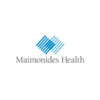
An Open-Label Study of Oral NNZ-2591 in Prader-Willi Syndrome (PWS-001)
Prader-Willi SyndromeA study of the safety, tolerability and pharmacokinetics of NNZ-2591 and measures of efficacy in children and adolescents with Prader-Willi Syndrome.

Intranasal Oxytocin vs. Placebo for the Treatment of Hyperphagia in Prader-Willi Syndrome
Prader-Willi SyndromeHyperphagiaThis study is a phase 2 randomized double blind 8-week treatment trial of intranasal OXT vs. placebo in 50 subjects aged 5 to 17 years with PWS in order to assess IN-OXT's affect on measurements of (1) eating behaviors (2) repetitive behaviors (3) weight and body composition (4) quality of life (5) salivary OXT and hormone levels (including ghrelin, pancreatic polypeptide, peptide YY, GLP-1, insulin, glucagon, testosterone, and estrogen). If superior to placebo, this data will add to the current knowledge that OXT is an effective treatment for hyperphagia as well as other symptoms of PWS. Funding Source- FDA OOPD

A Study of Oral ARD-101 in Patients With Prader-Willi Syndrome
Prader-Willi SyndromeA Phase 2, Single-Arm, Open-Label Study to Evaluate the Safety and Efficacy of ARD-101 in Patients with Prader-Willi Syndrome

Guanfacine Extended Release for the Reduction of Aggression and Self-injurious Behavior Associated...
Prader-Willi SyndromeAggression21 moreThis is a placebo-controlled clinical trial to assess whether Guanfacine Extended Release (GXR) reduces aggression and self injurious behavior in individuals with Prader Willi Syndrome (PWS). In addition, the study will establish the safety of GXR with a specific focus on metabolic effects.

Effect of Deep Propioceptive Stimulation in Prader-Willi Syndrome
Sleep DisorderHyperphagia1 moreThe main objective is to study the effect of deep propioceptive stimulation with a heavy blanket for 2 weeks compared with a placebo blanket on sleep quality and behavior in patients with PWS

The Intervention of Obesity in Children With Prader-Willi Syndrome Using Prebiotics and Probiotics...
Prader-Willi SyndromePrader-Willi syndrome (PWS) is a rare genetic disease, with hyperappetite and severe obesity. At present, there is no effective drugs and interventions to help control the appetite of PWS patients. More and more evidence has shown that gut microbiota is closely related to obesity. Probiotics and prebiotics can improve the structure of gut microbiota, thus improve blood lipid levels and other biochemical indicators of obese people. Therefore, this study intends to explore the effectiveness and safety of probiotics and prebiotics in controlling appetite and weight gain of PWS children.

Study to Evaluate Efficacy, Safety, and Tolerability of RGH-706 in Prader-Willi Syndrome
Prader-Willi SyndromeRGH-706 is a novel, potent, and orally active MCHR1 antagonist drug candidate discovered and being developed by Gedeon Richter Plc. for weight management. This will be the first Phase 2, proof-of-concept study using RGH-706 and is the third study in the clinical development program for RGH-706. The aim of this study is to evaluate the efficacy, safety, and tolerability of RGH-706 in patients with Prader-Willi Syndrome (PWS).

Oxygen Versus Medical Air for Treatment of CSA in Prader Will Syndrome
Sleep ApneaCentral1 moreThe aim of this study is to determine if treatment with Medical Air (21% oxygen in room air) compared to supplemental oxygen (100% oxygen) will lead to similar improvements in the central apnea-hypopnea index (CAHI) for infants with Prader-Willi Syndrome. Despite the vast amount of research investigating the cause of central sleep apnea, there remain gaps in knowledge, lending to further research efforts. The decision to compare oxygen to medical air is based on several theorized mechanisms. The first of which is the supposition that provision of medical air may act as an arousal stimulus for the hypothalamus, thereby preventing sleep disordered breathing. Secondly, the hypercapnic challenge performed by Livingston et al demonstrated a delayed hypercapneic arousal response in PWS subjects despite simultaneous hyperoxia, leading us to question if therapeutic oxygen really plays a significant role in treating CSA. Lastly, the delivery of medical air via nasal prongs may provide sufficient arousal to terminate the cycle of events leading to central apnea, as described by Urquhart et al. A deeper understanding of central sleep apnea is essential to ameliorating its adverse sequelae, which include symptoms of ADHD, impaired attention, behavioral problems, and academic difficulties.

Impact of Bright Light Therapy on Prader-Willi Syndrome
Prader-Willi SyndromeExcessive Daytime Sleepiness4 moreThis is a placebo controlled clinical trial to assess the utility of light therapy as a sufficient treatment for excessive daytime sleepiness in patients with Prader-Willi Syndrome

Parent-Infant Inter(X)Action Intervention (PIXI)
Fragile X SyndromeAngelman Syndrome12 moreThe objective is to develop and test, through an iterative process, an intervention to address and support the development of infants with a confirmed diagnosis of neurogenetic disorders that leave individuals at risk for developmental delays or intellectual and developmental disabilities. The proposed project will capitalize and expand upon existing empirically based interventions designed to improve outcomes for infants with suspected developmental delays. Participants will be infants with a confirmed diagnosis of a neurogenetic disorder (e.g., fragile X, Angelman, Prader-Willi, Dup15q, Phelan-McDermid, Rhett, Smith Magenis, Williams, Turner, Kleinfelter, Down syndromes, Duchenne muscular dystrophy) within the first year of life and their parents/caregivers. The intervention, called Parent-infant Inter(X)action Intervention (PIXI) is a comprehensive program inclusive of parent education about early infant development and the neurogenetic disorder for which they were diagnosed, direct parent coaching around parent-child interaction, and family/parent well-being support. The protocol includes repeated comprehensive assessments of family and child functioning, along with an examination of feasibility and acceptability of the program.
